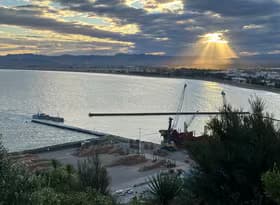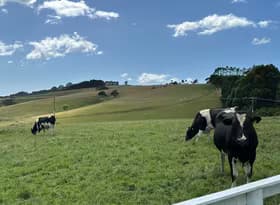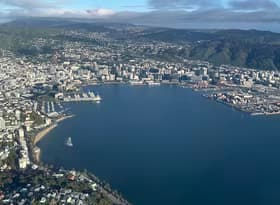Considering small communities: perspectives from North Canterbury
Keeping abreast of economic and community development projects around the country is part and parcel of a day in the life of economists at Infometrics. We have recently been made aware of some of the good work that Enterprise North Canterbury’s Business Development Manager, Miles Dalton, and his colleagues have been doing on a project in Culverden that is aiming to reduce social isolation in rural North Canterbury. Benje Patterson, Senior Economist, decided to have a quick chat with Miles and learn his views on the important role which economic development agencies play in helping smaller communities within regional New Zealand.
Benje: So Miles, Enterprise North Canterbury seems to put significant emphasis on developing strategies for each community within its broader catchment. Why do you think it is important to consider intra-district issues when devising economic development strategies and action plans rather than just approaching issues at a higher district level?
Miles: Because the issues of a small town can be completely different to the region as a whole. The Hurunui for instance, is a real mix. There is Hanmer, a town that is almost purely fed by tourism. There’s Amberley which is a small service town that is still within reach of Christchurch. There is Culverden, which is more isolated and mainly supports the massive dairy farms of the Amuri Basin. In short, none of the towns are anything like the averages that come out of a region wide statistical exercise and they are all quite different from each other. In cases like this, the regional data can be perfectly accurate, but still not accurate enough to give a real picture of a small community and its needs.
Benje: What is an economic development agency’s (EDA) role in facilitating the production of such strategies?
Miles: That comes down to an EDA’s relationships with businesses, communities and councils. It also comes down to the skills they have. Not every EDA has the capacity to look at strategies in the mid range, and many can only look at helping individual businesses or contributing to a regional strategy. Looking at a small community of businesses is quite a different beast and can be very difficult to make headway with – especially if there are egos or bad blood to contend with amongst the key players in a community.
Benje: How can an EDA or council affect outcomes? When should they intervene and when are they better to focus on increasing awareness and information flows to allow better decision making?
Miles: EDAs and Councils can massively affect outcomes, but there is a real danger of them owning those outcomes. The reality is that EDAs and Councils should only become actively involved when there is buy-in from the local business community. Without buy-in you are simply not going to make a difference. EDAs and councils should also know when to let go. In the end, any strategy is only going to work if it is owned by the community that benefits from it. We go by the mantra – Initiate, Facilitate, Liberate. So we find a gap, find a way to fill the gap, and give the solution to the community to enact.
Benje: What information limitations are out there that can affect EDAs identifying and monitoring intra-district issues?
Miles: There are huge limitations. Most data is either on a regional basis (and often regional data does not cover the same footprint – it all depends on the source), or too basic to really be a lot of use. Really, when you get down to a small community level the best way of gathering data is simply talking to people, finding out what works and what doesn’t work and looking for the commonalities in what people think. Then test that against existing data and to see if what you are seeing stacks up with the facts that exist.
We thank Miles Dalton for taking the time to share his views on the role which EDAs, like Enterprise North Canterbury, play in helping smaller communities within regional New Zealand. For more information on the work Miles and his colleagues have been doing in Culverden, please see here.
At Infometrics, we have listened to the growing demand in provincial New Zealand for more in depth coverage of local communities and are in the process of developing small area economic profiles. The profiles will have a similar look and feel to what we have developed for Auckland’s local boards, and will give decision makers in the provinces the ability to get detailed economic and social insights of each small area within their jurisdiction. We will keep our followers abreast of developments in this area, or get in touch for more specific details.









